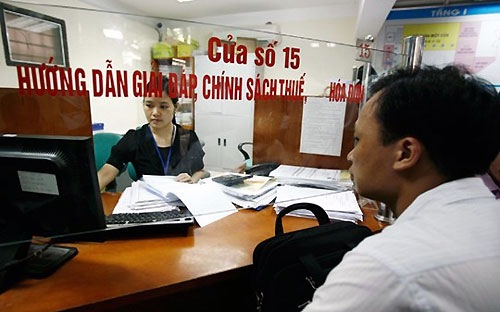The Bidding Law of 2013, passed by the National Assembly on November 26, 2013, and effective from July 1, 2014, has amended, supplemented, and addressed the limitations and deficiencies of the previous Law issued in 2005, promptly meeting the requirement for a transparent and competitive environment for bidding activities, while also contributing to the improvement of the legal framework for procurement using state capital.

First, diversifying bid evaluation methods.
The evaluation of bid dossiers by the lowest evaluated price method stipulated in the Procurement Law of 2005, although an advanced method consistent with international practices, does not fully account for specific conditions in Vietnam, making it difficult to apply in some cases. The Procurement Law of 2013 addressed this limitation by adding new evaluation methods to provide investors with more flexibility and better options for selecting contractors more suitable to the type and scale of the bid package. It also helps prevent cases where a contractor bids a low price but lacks the capacity and experience to implement the bid package. Specifically, when evaluating bid dossiers for non-consulting service packages, goods procurement, construction, and mixed packages, the investor can choose one of the following methods: the lowest evaluated price method, the evaluated price method, or the combined technical and price method. For consulting service packages, the investor can choose among methods such as the lowest price method, fixed budget method, based on technical evaluation, or the combined technical and price method.
Second, adding new contractor selection forms.
In addition to the contractor selection forms already stipulated in the Procurement Law of 2005 (open bidding, limited bidding, direct appointment of contractor, competitive bargaining, direct procurement, self-implementation, selection of contractors and investors in special cases), the Procurement Law of 2013 added community participation forms to align with practical conditions. This aims to promote domestic production and create employment for local labor. For packages under the national target program, programs to support hunger eradication and poverty reduction for mountainous, remote, isolated, and island areas with special socio-economic difficulties, or small-scale packages, local communities, organizations, groups, and local craftsmen capable of handling those packages will be assigned to implement part or all of the packages.
Third, adding contractor selection methods.
The Procurement Law of 2005 stipulates only three bidding methods: one-envelope method, two-envelope method, and two-stage method. To facilitate the contractor selection process, the Procurement Law of 2013 clearly defines four bidding methods: one-stage one-envelope method; one-stage two-envelope method; two-stage one-envelope method; and two-stage two-envelope method. Notably, the one-stage two-envelope method applies to open bidding, limited bidding for consulting services, non-consulting services, goods procurement, construction, mixed packages, and open bidding for investor selection (whereas the Procurement Law of 2005 stipulated that this method only applies to consulting service packages).
Fourth, providing more incentives to domestic contractors.
The Procurement Law of 2013 clearly specifies special incentives for domestically produced goods and special incentives for domestic contractors participating in domestic or international bidding. For goods, contractors will receive incentives when participating in domestic or international bidding to supply goods with a domestic production cost ratio of 25% or higher. For contractors, the Procurement Law of 2013 requires foreign contractors to form a consortium with domestic contractors when participating in international bidding in Vietnam. If the consortium's domestic contractors handle 25% of the package's work or more, incentives will be applied. Additionally, contractors employing female workers, war invalids, the disabled, or small enterprises will receive incentives when participating in domestic bidding.
These provisions have been carefully calculated, do not contradict international practices, and any country has policies to support domestic production development and create jobs for vulnerable laborers in society. This provision aims to continue emphasizing the policy of prioritizing resource development and job creation for domestic labor; gradually helping Vietnamese contractors raise their capabilities and competitiveness to eventually become independent contractors implementing large, high-tech, and complex packages not only in the domestic market but also in the international market.
Fifth, having a specific section on drugs and medical supplies.
Due to the particular nature of these goods, investors can apply price negotiation. This is a brand-new form that has emerged in recent years. Therefore, the Procurement Law of 2013 promptly added this form to facilitate investors in purchasing drugs when the package has only 1 or 2 producers, or it is an original medicine, rare medicine, patented medicine, and other specific cases.
Sixth, strictly regulating contracts in bidding.
The Procurement Law of 2013 made a significant shift in regulations concerning the signing, implementation, and management of contracts in bidding. To avoid the situation of applying inappropriate contract types to the nature of the bid package, adjusting contracts, contract forms, and contract performance time arbitrarily, causing waste and reducing investment efficiency, the Procurement Law of 2013 clearly defines the responsibilities of the contractor and the investor during the contract implementation process. All bid packages and projects under the scope of the Procurement Law are limited to four types of contracts: lump-sum contracts, fixed unit price contracts, adjustable unit price contracts, and time-based contracts. Particularly, the Procurement Law of 2013 stipulates that the lump-sum contract is the primary contract type and prioritized for application. If a lump-sum contract is not applied, the approver of the contractor selection plan must justify why another contract type (fixed unit price, adjustable unit price) is chosen, and not the lump-sum contract.
Seventh, creating a basis to attract private investors.
The bidding process to select investors to implement projects in the form of public-private partnerships (PPP), land-use investment projects has been piloted in some localities. This is regulated in Decree No. 108/2009/ND-CP, November 27, 2009; Decision No. 71/2010/QD-TTg, November 9, 2010; Circular No. 03/2011/TT-BKHDT, January 27, 2011. Based on this, the Procurement Law of 2013 has established general principles for bidding to select investors to serve the implementation of PPP, thereby creating a basis to encourage and attract more robust private sector participation in infrastructure construction, contributing to public investment restructuring and economic restructuring.
Eighth, unifying regulations on centralized procurement and regular procurement.
Instead of the previous public procurement, which took a lot of time and organizational costs with hundreds of different agencies acting individually, the centralized procurement agency will take responsibility for organizing professional procurement once. This method not only enhances professionalism in procurement activities but also increases efficiency, shortens time, and reduces organization costs. It also supports domestic production development and encourages contractors to improve the quality of goods and services. Additionally, the application of framework contract agreements in centralized procurement and the formation of professional and rational bidding organizations will enhance the economic and social effectiveness of procurement tasks and support domestic production development.
Along with centralized procurement, the Procurement Law of 2013 also supplements several primary principles and general procedures in regular procurement to strengthen the legal effect of this regulation, ensuring the consistency of the procurement legal system (when the Procurement Law of 2013 had not yet been enacted, this issue was only regulated in circulars). Additionally, the decentralization in regular procurement is more specifically defined, enhancing accountability, and simplifying administrative procedures.
Source: skhdt.binhdinh.gov.vn
 Article table of contents
Article table of contents





.Medium.png)
.Medium.png)
.Medium.png)
.Medium.png)
